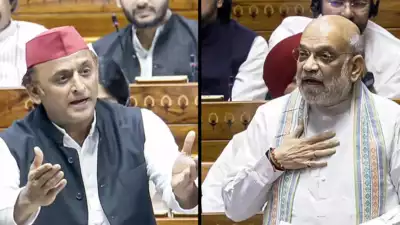Lagatar24 Desk
New Delhi: The Lok Sabha passed the Waqf (Amendment) Bill, 2025, in the early hours of Thursday after an extensive debate lasting over 12 hours. The ruling NDA described the bill as beneficial for minorities, while opposition parties labeled it “anti-Muslim.”
The amendments proposed by opposition members were rejected through voice votes, and the bill was eventually approved by a division of votes, with 288 supporting and 232 opposing.
Major provisions of the bill include strengthening Waqf tribunals with a systematic selection process and defined tenures aimed at efficient resolution of disputes. The mandatory contribution by Waqf institutions to their respective Waqf boards is reduced from 7% to 5%. Institutions earning above Rs 1 lakh will now be audited by auditors appointed by state authorities.
Additionally, the bill introduces a centralized online portal to automate the management of Waqf properties, promoting transparency and administrative efficiency. The amendment restores the pre-2013 condition permitting Muslims, who have practiced for at least five years, to dedicate properties as Waqf. It mandates that women must receive their rightful inheritance before the property can be dedicated as Waqf, with special protections for widows, divorced women, and orphans.
To address cases involving government properties claimed as Waqf, the bill assigns investigation responsibilities to officers ranked above a collector. It also stipulates the inclusion of non-Muslim members in both central and state Waqf boards to foster inclusivity.
Here’s how various parties reacted to the bill during the Lok Sabha debate:
Home Minister Amit Shah stated, “Those alleging this bill undermines equality or discriminates against any religion are mistaken. None of these fears will materialize.”
Gaurav Gogoi of Congress criticized the bill, declaring it an “attack on the basic structure of our Constitution,” claiming it aims to “divide society and disenfranchise minorities,” predicting increased litigation and further issues.
Kiren Rijiju countered opposition accusations, stating, “The government is not interfering in any religious institutions. The amendments are correcting overreaches introduced by the previous UPA government.”
Ravi Shankar Prasad of BJP defended the bill, asking critics to consider its entirety and questioning how measures aimed at empowering women and underprivileged Muslims could be unconstitutional.
A Raja of DMK voiced concerns over the secular nature of the country, saying, “It is ironic that minorities’ rights are entrusted to a party without Muslim representation. Parliament must decide whether India follows its constitutional path or yields to communal forces.”
Samajwadi Party leader Akhilesh Yadav opposed the bill, claiming it was designed to “snatch lands and homes,” predicting it would eventually be detrimental to BJP itself.
JD(U)’s Lalan Singh dismissed opposition criticism of secular credentials, asserting their secularism was merely vote-bank politics.
Kanimozhi from DMK emphasized opposition unity, stating, “The INDIA alliance stands firm against this bill, committed to safeguarding minorities.”







